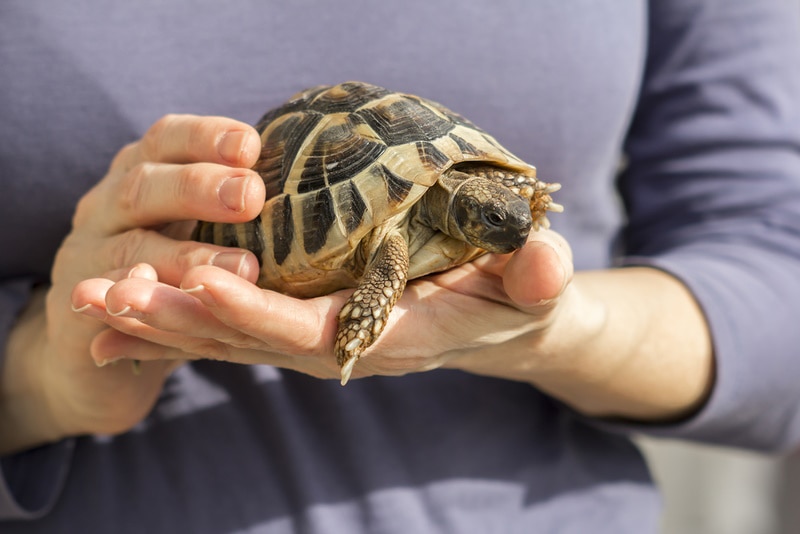Are Turtles Good Pets? Reason, Facts & FAQ
Updated on
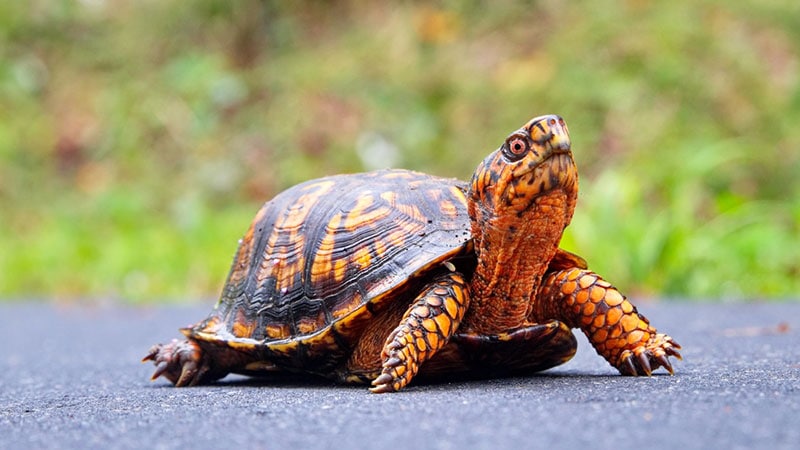
There’s no denying that, as Americans, we love our pets. Millions of American households have at least one pet and many pets, from dogs and cats to rabbits, fish, guinea pigs, ferrets, and more. Among them is the turtle, which has become quite popular over the last few decades. The question is, are turtles good pets? The answer, at least according to the Humane Society of the United States, is no, and for several good reasons.
In the article below, we’ll shed light on the reasons for the Humane Society’s stance. We’ll also look at some of the reasons why turtles still might make good pets. It’s vital info that can help you make the best decision on whether to bring a turtle into your home.
Why Don’t Turtles Make Good Pets?
The Humane Society of the United States believes that turning a turtle into a pet is not a good idea. Yes, they are docile creatures, and some breeds are attractive and fun to watch. Besides that, however, turtles are not easy to care for, especially for first-time owners.
Turtles Can Make You Sick
As an adult, there’s a very good chance you’ve heard of the food-borne illness salmonella caused by the salmonella bacteria. While most people get sick from eating food tainted by the bacteria, it’s also carried by reptiles, including turtles.
If the turtle you adopt has salmonella bacteria on their body, it could easily be transferred to you or other people in your family. The risk is so high that it’s illegal in the United States to sell small turtles. The health risk they pose to children, senior citizens, and people with lowered resistance due to other health issues is simply too great.
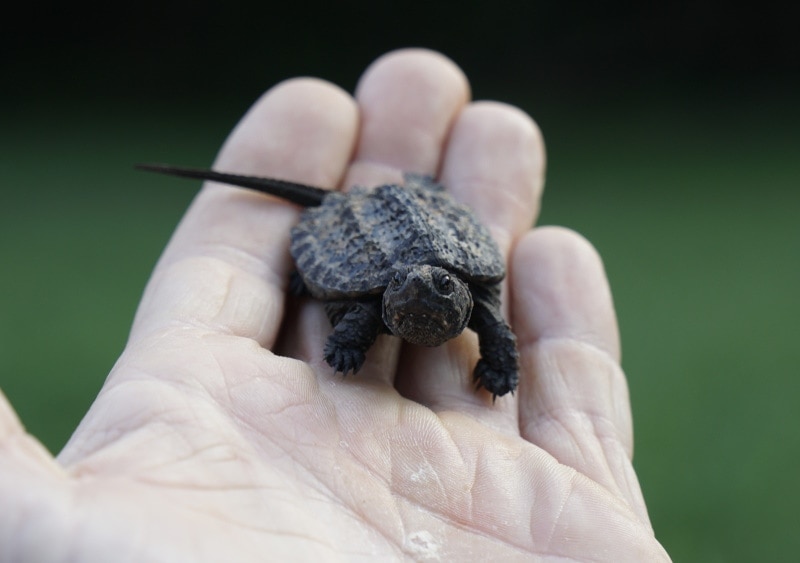
The Salmonella Bacteria on Turtles Can Be Transferred to Others by Touch
Knowing the risk posed by salmonella bacteria is highest for children, you might think that, as an adult, it’s okay to own a turtle. The problem is, if you touch your turtle or their tank and then touch someone else, you can transfer the bacteria to that person.
The journal Pediatrics performed a study in 2006 that found something very interesting and terrifying. Exposure to reptiles was a big cause of salmonella poisoning in infants. When you consider how unlikely it is to have an infant handle a turtle or other reptile, it’s only logical that the Salmonella was transferred by someone else.
Turtles Are an Invasive Species
Many folks adopt a turtle or two, thinking they will make great pets. Unfortunately, when they realize they no longer want the animal, there are few options to re-home them. Rescue groups usually don’t take turtles as they’re overwhelmed by requests, which leads many people to let their pets loose into the wild.
What’s the problem with setting them free? First, it’s illegal to let a turtle loose in the wild. Second, your pet turtle might carry diseases that kill wild turtles or other animals. Then there’s the fact that some turtle species will eat the food local species eat, causing their decline. It’s become so bad that turtles are now on the list of the 100 most invasive species on the planet!
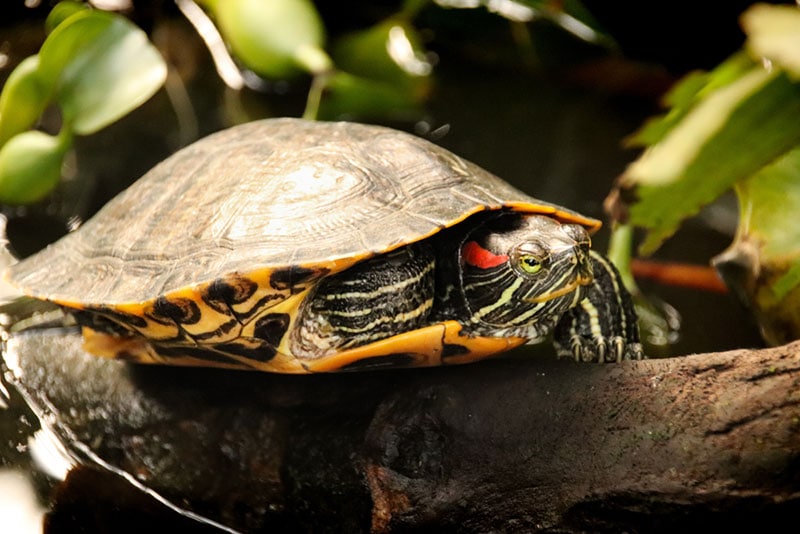
Turtles Can Live for Decades
Imagine if the dog you got as a child lived so long that, when you retired, they were still with you. That’s what can happen with a turtle, as these animals can live up to 30 years or longer in captivity. And when we say longer, we’re talking about 50, 60, and 70 years.
That’s an incredibly long time to be a caretaker for any pet, let alone one that can’t give you any genuine affection. Plus, your turtle won’t stay one size like a dog or cat but will continue to grow its entire life, forcing you to get ever-increasing tanks and other equipment for your pet.
You Can’t Adopt a Baby Turtle
If you think it would be nice to get a baby turtle for your child as a pet, think again. Not only do they pose a true health risk to your child due to salmonella, but selling turtles under 4 inches in length anywhere in the United States is illegal.
Turtles Need a Lot of Specialized Care
Many believe that turtles are “easy to care for,” but the reality is far from that. These animals need large tanks, for example, and specialized filtration systems similar to aquarium fish.
Turtles also need specialized lighting to make Vitamin D and prevent bone anomalies, and they require a lot of cleaning of their bodies and habitat. In short, turtles are more challenging to care for than most people believe they are.
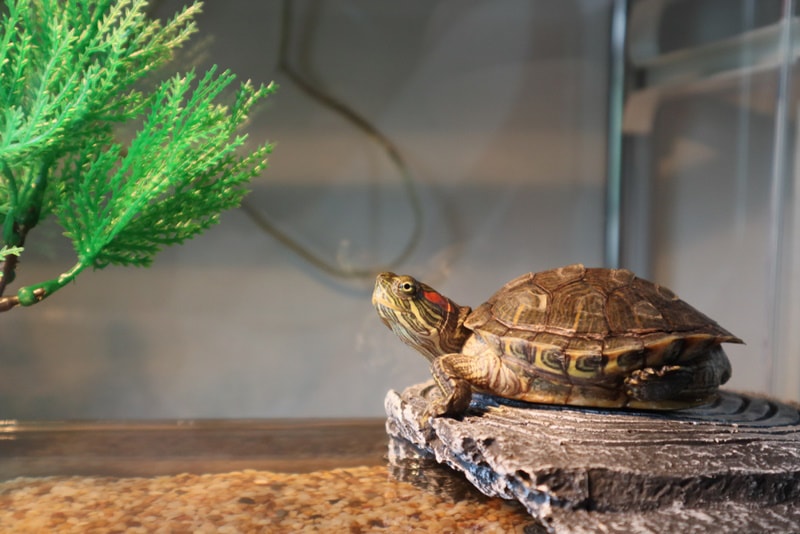
What Factors Make a Turtle a Good Pet?
There’s no denying that a turtle is a fascinating animal. (If they weren’t, the Teenage Mutant Ninja Turtles wouldn’t have been a worldwide phenomenon for the last 40 years!) Turtles have unique personalities and move slowly enough that kids can take a long look at them whenever they like.
Turtles also can teach kids about the world and what it means to put another creature’s life in your hands, figuratively speaking. Feeding a turtle can teach kids about nutrition and the responsibility it takes to care for an animal.
A turtle might be a good choice for an older child or an adult who wants a docile pet that doesn’t demand a high level of attention. You must, however, go into the situation with your eyes wide open to the downsides of turtle ownership.
Final Thoughts
Although they have some amazing attributes, keeping a turtle as a pet seems to have more negatives than positives. The worst of these negatives is the risk of salmonella poisoning, especially for small children and seniors.
Specialized care, the difficulty of re-homing an unwanted turtle, and the fact that they’re considered invasive don’t help, either. All these factors put together make turtles a poor choice of pet except for the most dedicated and diligent people. Therefore, most veterinarians recommend not adopting a turtle and instead opting for another species of pet.
See also:
- Do Turtles Cry? Vet-Approved Science & Reasons
- How Long Do Box Turtles Live? Average Lifespan, Data & Care
Featured Image Credit: Simply Photos, Shutterstock


